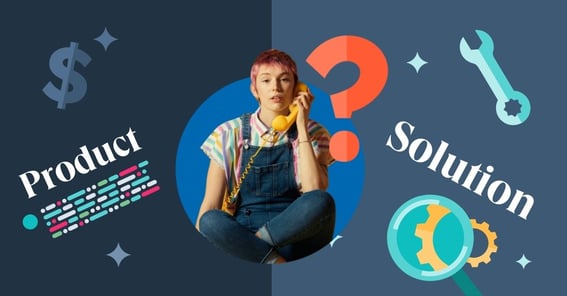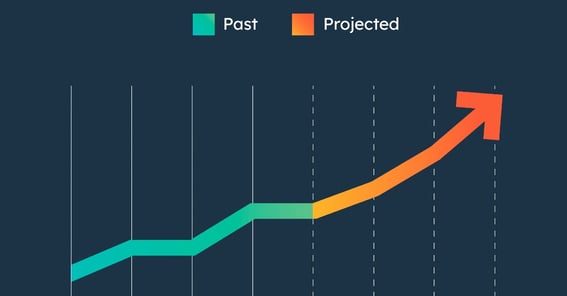How to Add a Sales Org to Your PLG Company
Host Mark Roberge is joined by Dino DiMarino, CRO of Snyk, to discuss what product-led growth tactics helped Snyk scale to a billion dollar valued company.
written by: Ron Dawson
Get the Podcast
Episode Summary
 Mark Roberge, the host of the Sciences Scaling Podcast, talks about the challenges of scaling companies effectively. He emphasizes the importance of understanding the best practices of scaling, especially in today's business landscape.
Mark Roberge, the host of the Sciences Scaling Podcast, talks about the challenges of scaling companies effectively. He emphasizes the importance of understanding the best practices of scaling, especially in today's business landscape.
The guest on this episode is Dino DiMarino, CRO of Snyk, a "platform that quickly finds and fixes security issues in proprietary code, open source dependencies, container images, and cloud infrastructure so businesses can build security directly into their continuous development process."
Mark and Dino discuss the significance of layering a sales organization onto product-led growth strategies for successful scaling. They delve into the applicability of product-led growth (PLG) to different startup contexts, with examples from companies like Atlassian and GitHub.
Mark encourages founders to explore PLG early on and highlights the benefits of adopting this model. Dino explains how PLG can help acquire customers and engage with a wider audience.
Unlocking Growth: Exploring Product-Led Strategies
Dino and Mark go on to discuss the concept of product-led growth (PLG) and its various components, such as freemium models and the integration of sales functions. They explore how freemium models can help drive efficiency, brand awareness, and access to users for startups. Dino emphasizes the importance of including freemium strategies in a founder's PLG approach to unlock potential users for product testing.
They also delve into the necessity of layering a sales organization onto PLG strategies to effectively scale and reach a broader audience. Dino highlights the indirect and direct benefits of PLG, such as product telemetry and the halo effect created by attracting users who later become paying customers. Mark underscores the intangible value of PLG, such as building brand awareness and creating sustainable moats that are challenging for competitors to replicate. As they continue the discussion, Dino and Mark emphasize the strategic synergy between product, marketing, and sales functions for successful scaling and business growth.
Leadership Alignment and Experimentation for Successful Product-Led Growth Strategies
In this section, Dino and Mark focus on the importance of leadership alignment and experimentation in implementing product-led growth (PLG) strategies within sales organizations. Dino stresses the need for leaders who are open to understanding and embracing PLG concepts to unlock the full potential of these strategies.
They explore the playbook for successful PLG implementation, highlighting the importance of hiring knowledgeable individuals, data instrumentation, and ongoing education within the organization. Dino explains the significance of balancing inbound and outbound sales motions to optimize customer interactions and conversions effectively.
The conversation delves into the evolution of sales structures to accommodate both PLG and outbound approaches, emphasizing the value of experimentation and strategic flexibility in adapting to changing market dynamics. Mark underlines the necessity of running experiments to determine the right timing for integrating outbound strategies and cautions against hasty decisions based solely on revenue targets.
The dialogue emphasizes the iterative and adaptive nature of PLG implementation, encouraging founders and organizations to approach go-to-market strategies with agility and a willingness to explore different routes to drive growth effectively.
Navigating the Opportunity Stage in Product-Led Growth Strategies
In this section, the discussion revolves around the similarities and differences in the opportunity stage between traditional sales-led approaches and product-led growth (PLG) strategies. It is highlighted that, despite some misconceptions, the opportunity stage remains crucial for detailed qualification and product demonstration, whether in an inbound or outbound sales motion. The conversation emphasizes that the sales process at the opportunity stage is quite similar, regardless of the lead source, with a focus on understanding the customer's needs, demonstrating value, and leading to closure.
Mark emphasizes the need to maintain a consistent sales methodology and not underestimate the buyers' knowledge, as they may still require guidance through the purchasing journey. The discussion also touches on the structure of sales teams, the specialization of account executives based on lead sources, and the evolution of PLG companies in the acquisition of customers, ranging from early-stage adoption to enterprise-level sales strategies.
Embracing Enterprise Sales in the Third Act of Product-Led Growth
This final section focuses on the evolution of a PLG company into its third act, targeting enterprise customers. The discussion highlights the strategic importance of engaging with Fortune 100 banks to validate the effectiveness of the product, enhance the company's security posture, and expand its market reach.
The conversation emphasizes the significance of acquiring key enterprise customers to reinforce brand credibility and open up new opportunities in different industries beyond the initial customer segments. Additionally, the transition to enterprise sales strategies involves hiring specialized enterprise reps who possess the skills to navigate complex organizational dynamics, build strong relationships with stakeholders, identify and develop champions within client organizations, and manage the negotiation process effectively.
The discussion underscores the importance of adaptability, vision, relationship-building, and resilience in successfully closing million-dollar deals with enterprise clients. Mark and Dino reflect on the ongoing potential of PLG as a disruptive go-to-market model with significant growth opportunities ahead, emphasizing the importance of aligning go-to-market strategies while preserving the unique qualities that contributed to the company's success.
About Mark Roberge
Mark Roberge is a Co-Founder and Managing Director at Stage 2 Capital and a Senior Lecturer at the Harvard Business School.
~~~~~
Note: The insights shared in this podcast were initially distilled through advanced AI summarization technologies, with subsequent refinements made by the writer and our editorial team to ensure clarity and engagement.
More stories like this...

Product vs. Solution Selling for Startups
Consumers today know what they want. Here’s how startups can differentiate themselves by selling solutions rather than directly selling their products.

Unlocking Growth With a Good RevOps Manager
Revenue Operations (RevOps) managers consolidate efforts, tools, and data involving sales, marketing, finance, customer support, and operations.

Effective Sales Strategy for Startups
Are you looking to increase sales as a new startup? Learn how to implement an effective sales strategy plan with this guide to startup sales strategies.
